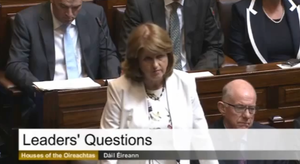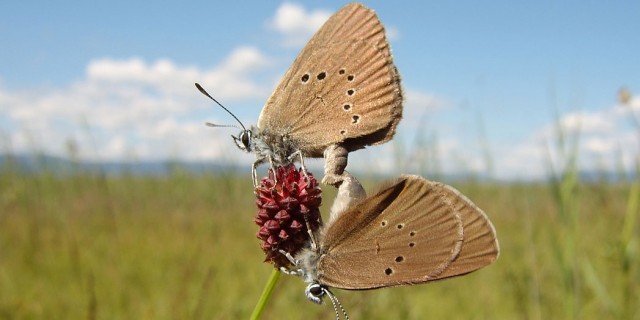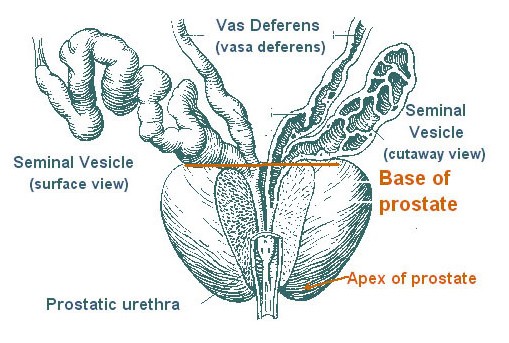€250m Irish investment to see five new S.F.I. research centres set up here
Aim of Science Foundation Ireland research centres is to achieve a step-change in the reputation and performance of Ireland’s research system
Mark Ferguson, director of of SFI Science Foundation Ireland, said that the new research centres “will make a significant contribution to Ireland’s economy, employment and reputation”.
Almost €250 million is to be invested in five new world-class Science Foundation Ireland (SFI) research centres, in a move aimed at enhancing research in critical and emerging areas of the economy including applied geosciences, software and medical devices.
The Department of Jobs through SFI will invest €155 million in the initiative, which will be combined with €90 million in cash and in-kind contributions from industry partners.
The funding will support “cutting-edge research in critical and emerging sectors of the economy which are key for job creation in Ireland”, and the funding will be provided over the next six years, 2014-2020. The five SFI Research Centres will be involved in over 165 industry collaborations with partners ranging from multinationals to SMEs and including Intel, Google, Microsoft, Medtronic Vascular Galway Ltd, Xilinx, Huawei and many more.
The investment is the second tranche of funding under the SFI Research Centres Programme; last year € 300 million (€ 200 from SFI and € 100 from industry) in funding was announced for seven research centres, the largest ever combined Government and industry co-funding collaboration of its kind in the research field in Ireland.
Minister for Jobs, Enterprise and Innovation, Richard Bruton said that the initiative is “aimed at achieving a step-change in the reputation and performance of Ireland’s research system”.
“This builds on the announcement of seven similar centres last year. With twelve world-class SFI Research Centres, Ireland is now well placed to take the lead developing cutting-edge research and new technologies, ultimately delivering more commercial ideas and jobs,” he said.
Professor Mark Ferguson, director general of Science Foundation Ireland and chief scientific adviser to the Government of Ireland, said, “These five new SFI Research Centres were selected following a highly competitive and rigorous international peer review process which screened for scientific excellence and assessed potential economic and societal impact.
These five SFI Research Centres complement the seven we announced last year – which are already having a major positive impact: making important scientific advances, initiating and enhancing enterprise, training people with appropriate skills, winning EU projects and enhancing Ireland’s international reputation. These SFI Research Centres combine scientific research with deep and significant enterprise engagement, excellence and impact. We are confident that they will make a significant contribution to Ireland’s economy, employment and reputation.”
The five centres involve a collaborative partnership across institutions in Ireland with participation from Cork Institute of Technology; Dublin City University; Dublin Institute of Technology; Dublin Institute for Advanced Studies; Dundalk IT; NUI Galway; Maynooth University; Royal College of Surgeons Ireland; Trinity College Dublin; Tyndall National Institute; University College Cork; University College Dublin; University of Limerick and Waterford Institute of Technology. The five new SFI Research Centres are as follows:
Tánaiste Burton gives smart-alec answers to Mary Lou McDonald in today's Dail
“I’M SORRY THAT’S NOT GOOD ENOUGH? AND I’M SORRY IF THIS BREACHES DÁIL ETIQUETTE.”


The Deputy leader of Sinn Fein Mary Lou McDonald unleashed a tirade against Joan Burton in the Dáil this afternoon over what she contended was an attempt by the Tánaiste to avoid answering a question about water charges.
“You know what Tánaiste, if anyone had any doubt as to whether or not you gave a toss about struggling families, they’ve had —by your smart-alec, dismissive and inaccurate response — they have their answer.”
The row centred on a letter sent by Wicklow County Council to tenants in the Rental Accommodation Scheme — which is run by local authorities — warning them that they may face eviction if they don’t pay their water charges.
Addressing concerns raised by McDonald, Burton pointed out that Sinn Féin and independent councillors controlled the Council, and suggested local representatives should contact their county manager to discuss the situation.
But a fuming McDonald accused her of deliberately misrepresenting how government works, saying it was local authorities’ responsibility to administer policy laid down in Dublin.
“Smart-alec Tánaiste thinks it is smart to disregard the concerns that RAS tenants now have that their inability to pay your awful charge could jeopardise their home,” McDonald said.
“YOU STAND UP AND GIVE ME A SMART-ALEC RESPONSE.
I’m sorry that’s not good enough … and I’m sorry if this breaches Dáil etiquette.
 WHO PAYS FOR WATER?
WHO PAYS FOR WATER?
McDonald’s presentation of the Council letter in the chamber comes in the wake of uncertainty in recent days over the position of landlords whose tenants can’t or won’t pay their water charges.
Irish Water was telling people on Twitter yesterday that if a tenant refused to pay, the landlord would be held accountable. A revised statement today from the semi-state didn’t really clear the matter up, and Finance Minister Michael Noonan said this morning that more clarity was needed.
Indeed, Sinn Féin’s own Pearse Doherty even took to Twitter yesterday to try and find out what would happen in cases like the one being faced by the tenants in Wicklow.
Amid sustained heckling from the Sinn Féin backbenches, the Tánaiste told McDonald today that she should put a phone-call in to her own party’s public representatives in Wicklow.
She also talked up the water charges relief measures introduced as part of Tuesday’s Budget, which she said would benefit “something like 700,000 households”.
“That would be the first thing I suggest that your councillors advise the tenants of,” Burton said.
After McDonald’s ‘smart-alec’ comments, the Tánaiste changed strategy in her second response, talking up the various other measures introduced by ministers Noonan and Howlin this week which she said would benefit struggling families
“I’m not sure you have much experience of what it is like not to be well-off or to be unemployed,” she said…
But she was drowned out by a chorus of angry voices as she continued along the same tack, advising McDonald, essentially, not to lecture her on such issues.
“There’s an awful lot of angry men in Sinn Féin, I will say that,” Burton observed, as the heckling continued.
Lads, lads try and control it… It’s being turned on and off like a water tap.
“Try and just put a stop to it.
Burton eventually ran out of response time in the session, but she finished her answer by again advising Sinn Féín to take the issue up with Council management in Wicklow.
Prostate cancer is not something to keep quiet about
IT’S TIME MEN CAME OUT OF THE CLOSET AND OPENED UP ABOUT THEIR HEALTH.
Prostate cancer is mainly a disease of older men (although 25pc of cases are in younger men) and is often slow growing.
I think it’s great we’re focusing on men’s health this week. Men’s health does seem to get overlooked and despite (or could it be because of…) the facts that men don’t live as long as women, and up until recently, most doctors were male – it never seems to take centre stage. Men are often apologetic about seeking help with their health.
“Sorry, Doc, I’m only here because she sent me…” And I sometimes wonder is it part of that ‘Boys don’t cry’ ethos that prevents men from looking after their own needs and maybe causes them to suffer in silence. Prostate disease is a good example of this.
Your prostate is a small doughnut shaped organ that sits just below your bladder, and your urethra (outflow pipe) passes through the centre of it. It’s normally about the size of a chestnut but it enlarges with age.
Prostate cancer is mainly a disease of older men (although 25pc of cases are in younger men) and is often slow growing. And the symptoms – caused by the prostate cancer pressing on the urethra, sometimes partially blocking it – are often difficult for men to discuss.
‘Waterworks problems’ as the euphemism goes, include; poor stream, hesitancy, dribbling, urgency, incomplete voiding and incontinence. But these are not easy things to bring up, so men often don’t mention it and put up and shut up about their symptoms. I should point out that these symptoms don’t mean you have prostate cancer, they can be caused by normal, age-related enlargement of the prostate, but they do mean you should be checked out. Other symptoms such as pain at the base of the penis or passing blood are not normally caused by benign enlargement and should be checked out straight away.
The normal first line tests are a PSA blood test and a rectal examination. Which is not nearly as bad as people fear it to be? There’s quite a bit of controversy about prostate screening using the PSA blood test. International guidelines state men under 50 and over 69 should not be screened and that those in between those ages, should be told that the test, which is non-diagnostic, may lead to over investigation or over treatment – which can cause real side-effects. In a chestnut shell, what that means, is if you have a high PSA blood test, you’re obliged to go on for further investigations and biopsies and these investigations can cause problems, with urinary continence or with erections and ejaculation. Hence the controversy.
If you’re diagnosed with prostate cancer, the treatments are varied from ‘watchful waiting’ through to surgery, radiation and chemo. Watchful waiting for many older men is preferable, as prostate cancer in the elderly, often runs an indolent, slow, non-lethal course. If however you’re younger or the cancer is more advanced or aggressive – more invasive, surgical treatment is likely to be right for you.
Age is the single biggest risk factor for prostate cancer. With heredity and race also playing a role. But in terms of protective factors – having low blood cholesterol and a healthy diet seem to be the biggest game-changers. Keeping your cholesterol low is the most closely linked factor for remission and all prostate cancer sufferers should stick to a very low fat diet and may need a statin. Regular ejaculation has been shown in some studies to lower your risk of prostate cancer – so far from being bad for you; masturbation may in fact prevent prostate cancer. There’s something you were never told in school.
If you’re suffering from any of the symptoms mentioned above, don’t be afraid to talk to your doctor about it. Particularly if you’re a younger man and you have a family history. It’s time men came out of the closet and opened up about their health.
World’s deadliest spider shows up in family’s groceries


A family in South London has been “deeply traumatized” after the father discovered a deadly spider while unpacking the family’s groceries. The spider, called the Brazilian wandering spider, or Banana spider is the world’s most venomous arachnid.
The venomous spider got loose in the London home after the delivery of an online order from Waitrose. The arachnid had been hiding in a bunch of bananas, and when Tim, the father, picked the fruit up to put the bananas in a bowl, the spider made its appearance.
Waitrose delivered an online order to a London home with an unwanted hitchhiker in the bananas.
Tim, who would not give his last name, was so shocked he dropped the bananas into the bowl, trapping one of the spider’s legs. The six-inch diameter spider tried to make a run for it, tearing off one of its own legs in the attempt. This is when the father noticed the spider had been sitting on an egg sac.
With the spider in hiding somewhere in the kitchen, the couple’s two young sons fled the house as the parents made a frantic search. Waitrose was called, and employees came immediately to join the search. Meanwhile, Tim, who had taken a picture of the spider, did an online search and discovered the spider was a Brazilian wandering spider, the most venomous spider in the world.
The Royal Society for the Prevention of Cruelty to Animals (RSPCA) said they couldn’t handle such a dangerous animal, and advised the couple call the police. The police said they couldn’t remove the spider, either.
 The captured spider in a thick plasticbox.
The captured spider in a thick plasticbox.
Waitrose then sent in a pest control expert. Searching for the elusive killer spider proved to be difficult because it had gone into hiding. “We had no idea where it had gone. We were terrified. We got ourselves and our kids out of the house straight away,” Tim told the Guardian.
Steve Tripplett, the pest control expert straight away put the egg sac in the freezer to kill the eggs. Then, using a three-foot-long stick, he probed the fruit bowl, finding the spider hiding under the bananas. He says the spider went into an aggressive stance, standing on its hind legs and showing its fangs.
Tripplett was able to maneuver the spider into a plastic box which he sealed inside two additional boxes. It is understood the spider was shipped off to ascientific center abroad. The family, still upset over the morning’s events, opted to spend the night with friends.
It took several hours to get the spider captured, but the family was very relieved.
 The Brazilian wandering spider
The Brazilian wandering spider
The Brazilian wandering spider is also sometimes called the banana spider or armed spider. It belongs to the genus Phoneutria, Greek for murderess. There are eight species, with two being very notorious in the literature. In the 2010 issue of the Guinness Book of World Records, the Brazilian wandering spider is listed as the most venomous spider in the world. The Guinness book also points out that an effective antivenom is available and there have been few fatalities.
The wandering spider gets its name because it roams the forest floor at night, searching for prey. It does not have a lair or build webs. During the day it hides under logs, in termite mounds or in th among the leaves of banana trees (This is where the name banana spider comes from).
The toxicity of the venom from a bite from this spider is what makes it so dangerous. The venom contains a neurotoxin that affects the nervous system. The neurotoxin can cause excess salivation, an irregular heartbeat, and prolonged, painful erections (priapism) in men that sometimes last for hours. At deadly concentrations, the lungs are affected, leading to asphyxiation and death. As venomous as these spiders are, their venom is also being studied as a possibly treatment for erectile dysfunction.
Europe emission targets ‘will fail to protect our climate’


EUROPE’S LEADERS ARE ABOUT TO CONSIGN THE EARTH TO THE RISK OF DANGEROUS CLIMATE CHANGE, A UN EXPERT SAYS.
Prof Jim Skea, a vice-chair of the Intergovernmental Panel on Climate Change, says the EU’s plan to cut CO2 emissions 40% by 2030 is too weak.
He says it will commit future governments to “extraordinary and unprecedented” emissions cuts.
The Commission rejected the claim, saying the 40% target puts Europe on track for long-term climate goals.
The 40% target – proposed by the European Commission – will be finalised at an EU summit this week.
A spokesman for the Climate Commissioner Connie Hedegaard said: “Our 40% target is in line with science as it puts us right on track to meet our 2050 goal of cutting emissions by 80%-95%.
“This is what developed countries will need to reduce by 2050 according to the IPCC to keep global warming below 2C.”
But Prof Skea, vice-chair of the economics working group of the IPCC, told BBC News the EU’s 40% target for 2030 would not lead to the desired cut by the middle of the century.
He said the easy climate protection measures – like energy saving – had been snapped up, leaving to future leaders the job of introducing new clean technologies in every walk of life.
“I don’t think many people have grasped just how huge this task is,” he said. “It is absolutely extraordinary and unprecedented. My guess is that 40% for 2030 is too little too late if we are really serious about our long-term targets.”
Step change
He believes some politicians have not grasped the relative mathematics of transforming the energy economy step-by-step from 1990 baseline through to 2050.
He says the Commission’s current stance means that future leaders will need to make a three-fold cut in just 20 years – which Prof Skea believes is scarcely credible.
Prof Skea believes governments are setting targets by what appears to be politically achievable rather than what is necessary to transform the way we make and use energy as the century unfolds.
Much of the political difficulty lies in fears that Europe’s competitors will not play their part in reducing emissions, leaving EU firms and consumers saddled with high energy prices.
Poland says the 40% target will damage its economy. Other nations like the UK say the target should be made more ambitious if the US and China agree strong action to protect the climate.
Other negotiations around the EU’s climate and energy package centre on whether Europe should agree a mandatory energy efficiency target.
Environmentalists and several industry groups argue this is the best way of cutting emissions whilst also reducing dependency on Russian gas.
The UK’s Energy Secretary Ed Davey maintains that nations should be able to decide on their own strategies for cutting emissions without being bound by too many rules.
Prof Skea, who is based at Imperial College London, agrees with him. The best way of cutting emissions, he says, is by Europe ratcheting up efficiency standards across all products that use energy.
Some politicians recently complained that new EU efficiency standards were denying people the opportunity to buy the best vacuum cleaners.
But Prof Skea maintains that industry standards take the least efficient machines off the market, which benefits consumers without excessive political pain.



No comments:
Post a Comment